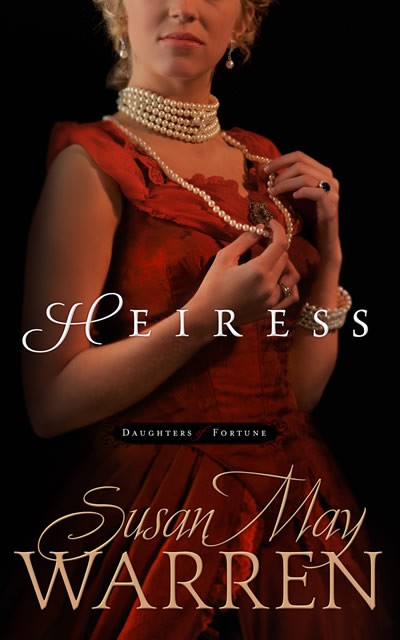 Synopsis:
Synopsis:
Esme Price and her younger sister, Jinx, have never known a life without luxury. It is 1896, and the privileged daughters of August Price, owner and publisher of The Chronicle, New York City’s most prominent newspaper, they have grown up in the family’s Fifth Avenue chateau. Jinx cannot wait for her society debut, and is anxious for Esme to marry Foster Worth, the man their father has selected for her. He is handsome and charming, and Jinx wishes that she were the one about to become engaged to him.
But Esme wants to be a journalist, not a society matron. Her dream is to acceded to her father’s position at the newspaper. Her father has no idea that she has been secretly submitting articles under the pseudonym “Anonymous Writer,” first-hand observations of society events, accompanied by photographs snapped by Oliver, the son of the family’s butler who once served as Esme’s footman.
Esme wants to marry for love, not to merge her family’s dwindling fortune with the Worth family’s assets. And she does not love Foster Worth. Rather than continue living a luxurious life, Esme is ready to risk everything in order to pursue her dream of being a newspaper woman.
As for Jinx, she too wants love, but she also craves a place on the society page of the newspaper, and is willing to do whatever it takes to secure her place in the upper echelons of New York society. Even if it means betraying her own sister.
As the decades pass and the two sisters lead very different lives, both learn that wealth and a position in society do not ensure happiness, fulfillment, or peace.
Review:

Esme is the beautiful, graceful, desired oldest daughter. Mother Phoebe has taught her well to be mannered, sophisticated, and enchanting in order to marry well and enjoy a secure future. Phoebe has no idea about the dime store novels and women’s magazines Esme keeps hidden in her room, or her daughter’s clandestine journalistic pursuits. Of course, Phoebe harbors a few secrets of her own, some of which are accidentally revealed to Jinx when she overhears her parents arguing. Phoebe is a product of her time, a woman who believes that she has no choice but to stand by her husband, no matter what, keeping up appearances in order to be received in polite society. But times are changing, and Esme feels called to accomplish something more important than being named in the newspaper’s society reports. She wants to be independent and in control of her own destiny. She wants to marry only when she loves and is loved in return. A marriage of convenience, designed only to merge two families’ assets, is of no interest to her. Esme’s mother does not understand her daughter’s rebellion, while her father simply does not care about Esme’s aspirations. He is determined to keep The Chronicle in business, even if it means shackling his own daughter to a man she does not love.
In stark contrast, Jinx is craves all the things that come so easily to Esme but do not interest her. Darker and plainer than Esme, Jinx longs to be as beautiful and charming as Esme, readily attracting suitors. She is jealous of Esme’s engagement to Foster Worth. When she and Foster develop an easy friendship, she believes that Foster could and perhaps does love her. When the opportunity presents itself, Jinx marries Foster, but quickly finds that there is no happiness to be found with the man she believes that she stole from her sister. In his eyes, she can see that she will never be able to replace Esme, and within a few years, after she has been able to carry a child to term, learns that he is capable of unspeakable cruelty. Still, when offered a chance at true happiness, her fear of losing her position in society and living a nondescript life informs her decision-making.
As the story progresses through the years and the action moves from New York City to Montana, Warren deftly explores two entirely different aspects of American life, contrasting the genteel, cultured, and pampered lives of Manhattan socialites with the rough-and-tumble existence of miners in the vast and unsettled West. Esme leaves behind her corsets, ball gowns, carriages, and servants in favor of men’s trousers and scratching out a living as the editor of a struggling newspaper in a small mining town not far from Butte. The battle over unionization is in full force and Esme wants to cover every aspect of the story, including the scandal that drove the owner of the local mine out of Montana to New York City a few years earlier. Now he has returned home to assist his aging and ailing father. If he sells the mine, many local jobs will be lost. Mining is a dangerous business, but in recent weeks there have been many incidents that have resulted in a number of deaths and serious injuries. Is it possible that the battle over whether to unionize has led to acts of sabotage designed to force a sale to the larger, more powerful Butte mining company? The story line is intriguing and its unexpected romantic angle quite beguiling. Warren allows Esme to explore the two aspects of herself — can the independent, strong-willed journalist really be the same woman who experienced such a refined upbringing? And can Esme reconcile one to the other and emerge an even stronger, more complete, fulfilled woman?
Eventually, the sisters’ two independent journeys merge when in 1917 Esme is called back to New York City by, she believes, her father. Her arrival brings many surprises, however, and some revelations not only about what has happened to her family during her long absence, but also her own life.
Warren’s characters are believable and sympathetic in their own right, although Esme is plainly the more empathetic because of her strength, and determination to fulfill her dreams in order to live what is, at the time, considered an unconventional life. Jinx is more typical of her time, driven by a desire to maintain her good standing in society in order to be accepted and secure. As with all of Warren’s novels, Heiress contains an underlying message about faith and destiny. Her characters ponder whether God has blessed or abandoned them, and seek divine guidance with their various trials, but the book never becomes preachy and the theme is only lightly explored, not the centerpiece of the story, making it readily enjoyable by believers and nonbelievers alike. Each character must come to terms with the choices he/she has made and the consequences thereof. The question of whether the two sisters can reconcile and forgive each other also looms large throughout the story.



1 Comment
I love stories about sisters. 🙂 This sounds like an interesting story. I enjoyed the review.